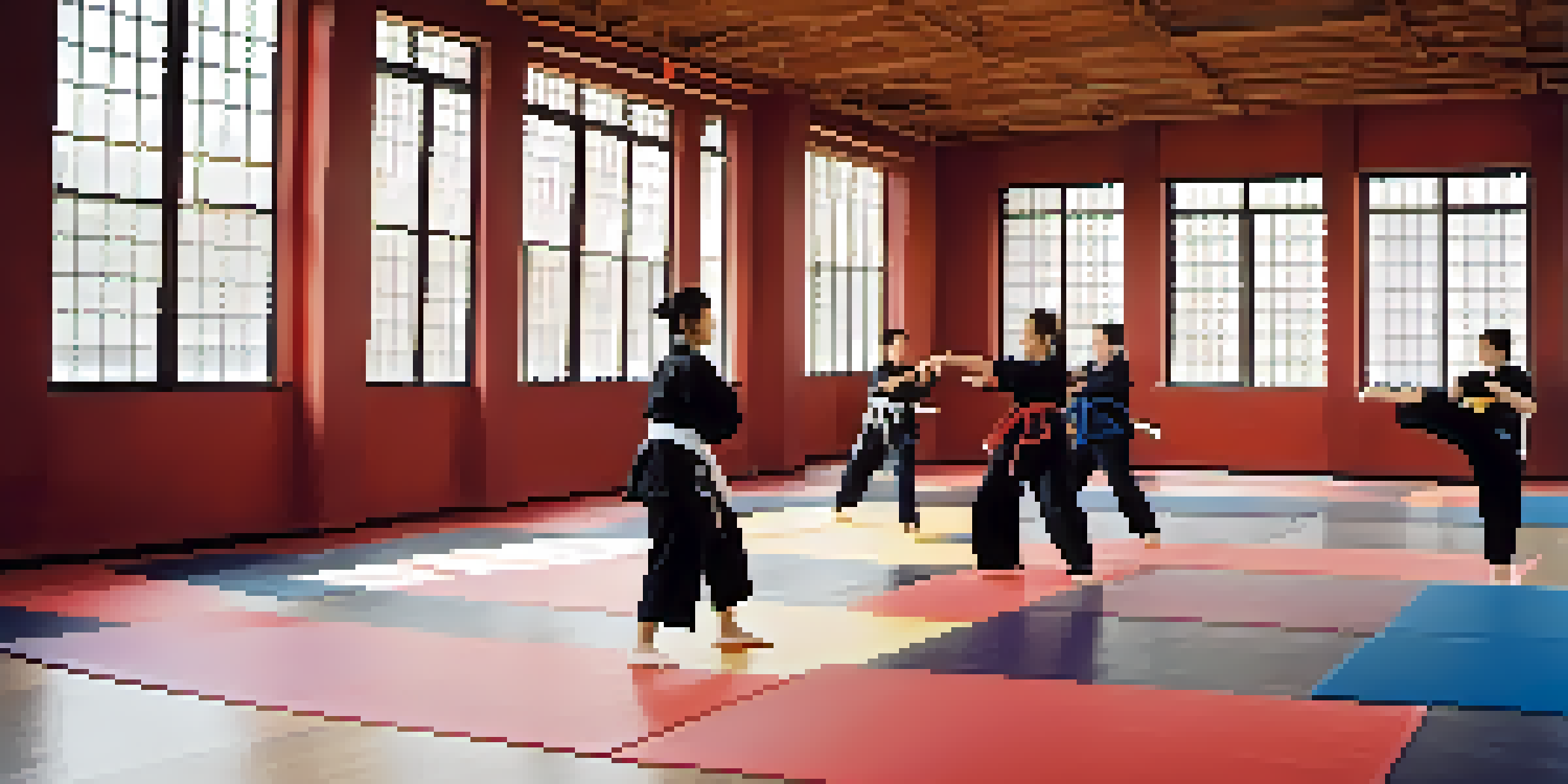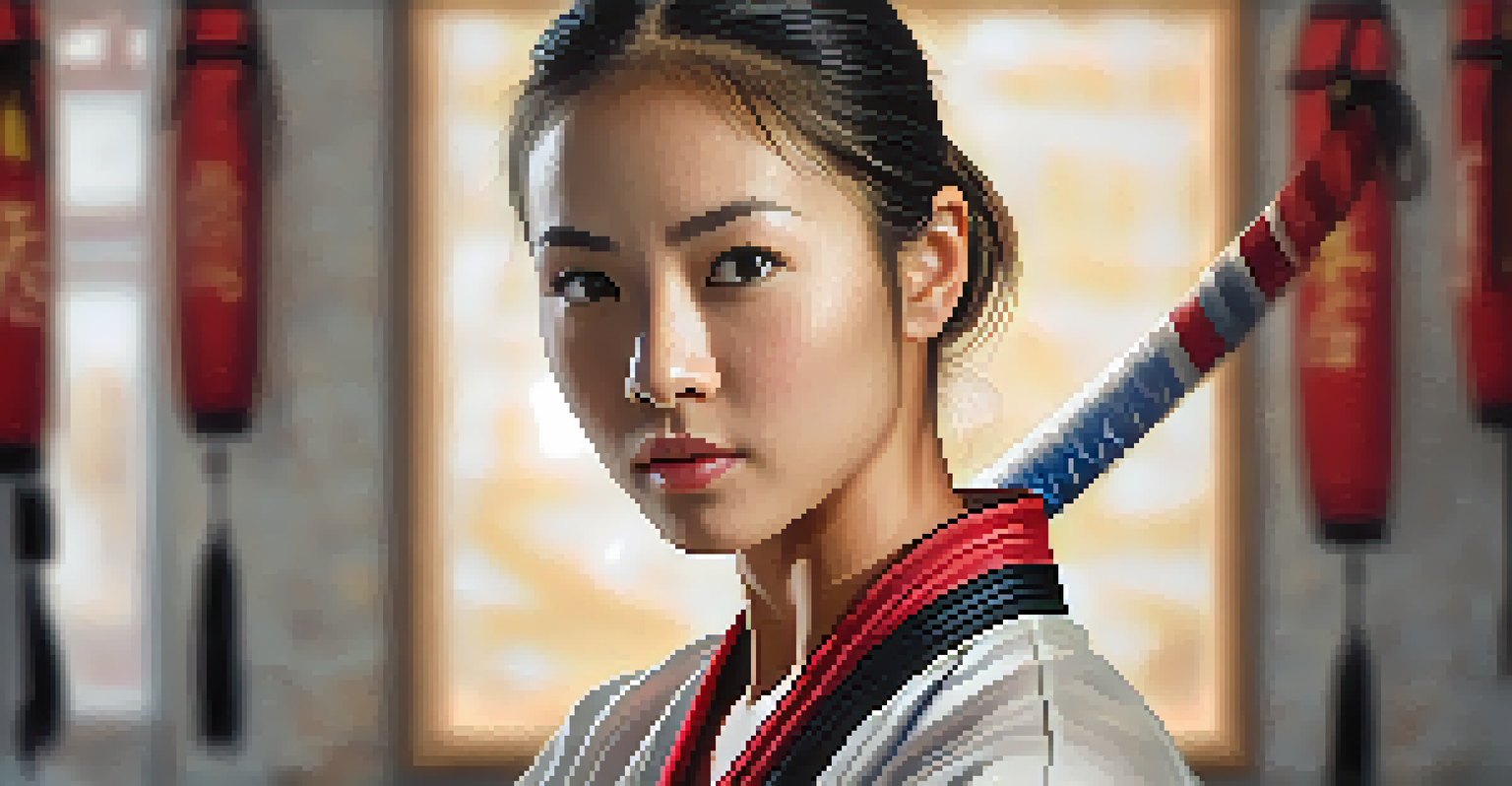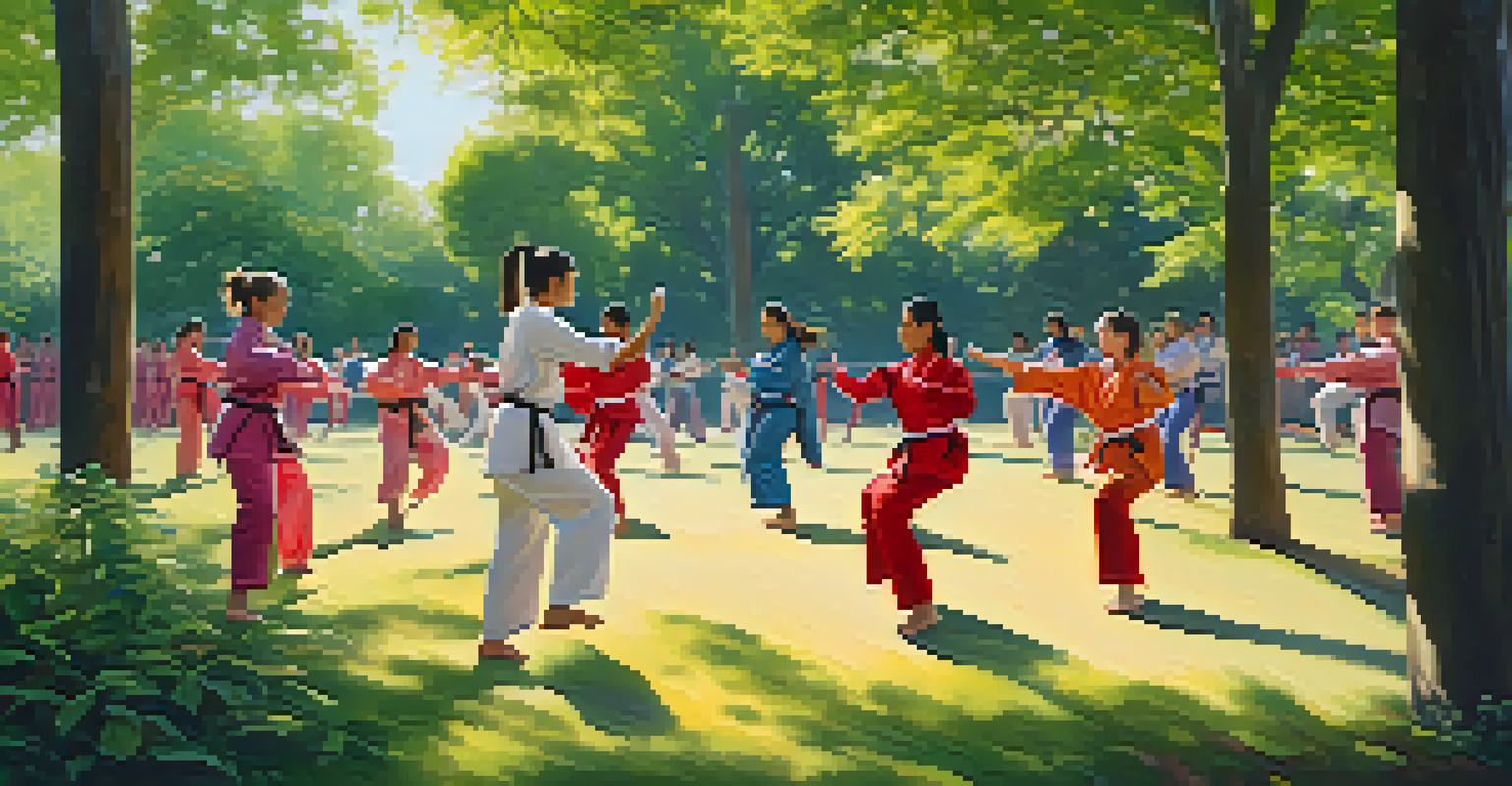Women in Martial Arts: Challenging Cultural Norms

The Historical Context of Women in Martial Arts
Historically, martial arts have been dominated by men, with women often sidelined. Cultural beliefs and stereotypes have shaped the perception of women in combat sports, leading to the idea that martial arts are 'masculine' activities. However, women have always played a role in martial traditions across the globe, even if their contributions were overlooked.
The power of a woman is not in her physical strength but in her ability to rise above expectations.
In many cultures, female warriors existed, defying norms and demonstrating strength. For instance, in Japan, the Onna-bugeisha were female warriors trained in martial arts, showcasing that women have been capable fighters throughout history. Recognizing these historical figures is crucial in understanding the foundation upon which contemporary female martial artists build.
Today, as awareness increases, more women are reclaiming their place in martial arts. They are not only participating but also excelling, challenging outdated notions about gender roles in sports and combat. This resurgence is inspiring a new generation and prompting a reevaluation of cultural narratives regarding women.
Personal Stories of Women in Martial Arts
Personal narratives are powerful tools for showcasing the impact of martial arts on women’s lives. Many female practitioners share stories of overcoming not just physical challenges, but also societal expectations. These stories often highlight the transformative journey of finding strength and confidence through martial arts training.

Take the example of a woman who began training in Brazilian Jiu-Jitsu as a way to cope with personal challenges. Through her journey, she discovered not only self-defense skills but also a supportive community. Such experiences resonate with many women, illustrating how martial arts can serve as a vehicle for empowerment.
Women Breaking Barriers in Martial Arts
Women are increasingly challenging stereotypes and reclaiming their place in martial arts, demonstrating strength and resilience.
These testimonials shed light on the resilience and determination of women in martial arts. They serve to inspire others to challenge their own limitations, both physical and mental. Ultimately, they are a reminder that martial arts can be a liberating experience that transcends cultural barriers.
The Role of Community in Women's Martial Arts
The martial arts community plays a pivotal role in fostering an inclusive environment for women. Many dojos and gyms are actively working to create spaces where women feel safe and supported in their training. This sense of community not only encourages participation but also helps women to thrive in a traditionally male-dominated space.
Women are the largest untapped reservoir of talent in the world.
Women-only classes and events have emerged, providing a platform for female practitioners to connect and grow together. These spaces promote camaraderie and allow women to train without the pressures that can come from mixed-gender settings. In turn, this leads to increased confidence and skill development.
Moreover, female mentorship within the martial arts community is crucial. Experienced women often guide newcomers, sharing their insights and fostering a supportive environment. This mentorship helps to break down barriers and encourages more women to pursue their martial arts journey.
Popular Martial Arts Among Women Today
Several martial arts disciplines have gained popularity among women, each offering unique benefits. Brazilian Jiu-Jitsu, for instance, emphasizes technique and leverage over brute strength, making it accessible to practitioners of all sizes. This aspect is particularly appealing to women looking to enhance their self-defense skills.
Similarly, Muay Thai and Kickboxing attract many women for their high-energy workouts and focus on striking techniques. These martial arts not only improve physical fitness but also build mental toughness and confidence. The dynamic nature of these disciplines keeps women engaged and motivated in their training.
Community Support Boosts Participation
A supportive martial arts community fosters inclusivity, allowing women to thrive and build confidence through targeted classes and mentorship.
As these martial arts continue to grow in popularity, more women are stepping onto the mats, breaking stereotypes, and showcasing their skills. The visibility of female fighters in competitions and media further encourages participation, demonstrating that martial arts are for everyone, regardless of gender.
Challenging Stereotypes Through Competition
Competitive martial arts provide a platform for women to challenge stereotypes directly. As female athletes compete at various levels, they showcase their skills and determination, often dismantling preconceived notions about women's capabilities in combat sports. This visibility is crucial in changing societal perceptions.
Tournaments and competitions have seen a steady increase in female participation, highlighting the growing interest in martial arts among women. As more female athletes rise through the ranks, they serve as role models for aspiring martial artists, demonstrating that success is attainable regardless of gender.
By excelling in competition, women not only pave the way for future generations but also inspire conversations about gender equality in sports. Their achievements challenge the narrative that martial arts are solely a male domain, proving that women can compete, win, and thrive in these arenas.
The Importance of Representation in Martial Arts
Representation matters in all fields, and martial arts are no different. The presence of female instructors and role models can significantly influence the participation of women in martial arts. When aspiring martial artists see women in leadership roles, it reinforces the notion that they, too, can achieve their goals.
Media representation also plays a vital role in shaping perceptions. Films, documentaries, and social media platforms showcasing female martial artists bring visibility to their skills and stories. This representation helps to normalize the idea of women as strong, capable fighters and encourages others to join the movement.
Importance of Representation Matters
Increased visibility of female role models and instructors in martial arts inspires more women to participate and pursue their goals.
As the industry continues to evolve, increasing representation is crucial. It sends a powerful message that martial arts belong to everyone, regardless of gender. The more diverse the representation, the more women will feel empowered to take part in martial arts.
Future Directions for Women in Martial Arts
Looking ahead, the future of women in martial arts appears promising, with ongoing efforts to promote inclusivity and equality. Organizations are increasingly advocating for equal opportunities, resources, and recognition for female athletes. This shift is essential for ensuring that women continue to thrive in martial arts.
As more women step into leadership roles within martial arts organizations, we can expect positive changes in policies and practices. These leaders are well-positioned to advocate for women's rights in the sport, ensuring that female athletes receive the support they need to succeed.

The growing emphasis on women's empowerment within martial arts is a movement that has the potential to inspire change beyond the dojo. As women continue to challenge cultural norms and push boundaries, they pave the way for future generations, proving that martial arts is truly for everyone.